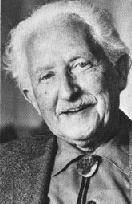Why
is Erik Erikson Important in Psychology?
Erik
Erikson can best be described as a Freudian ego-psychologist. This
simply means that he was able to accept some of Freud’s theories or
concepts, such as the Oedipal complex and some of the theories
concerning the ego, and acknowledge that they were somewhat correct. One
reason why he is so famous among Freudians and non-Freudians is the fact
that he was much more society and culture-oriented than the rest of
theorists of that time. He stood out because he often pursued areas such
as the unconscious and instincts as well. His most famous work involves
the refinement and further expanding the work of Freud.
Erikson is
mostly remembered in Psychology for his Theory of Socioemotional
Development, which is also referred to as the Developmental Stages.
Although he was influenced by Sigmund Freud, Erikson went on to organize
life into eight stages that extend from birth up until death. What made
him distinguished amongst the rest of the psychologists was that several
developmental theories at the time merely covered childhood and they did
not mention any type of research involving adulthood. Erikson was well
aware of this, which is the reason why he developed the stages of
adulthood. What he also kept in mind was that adulthood covers a span of
many years, which was the main reason why there are more than just one
stage in adulthood. He divided adulthood up into the experiences of
young adults, middle-aged adults, and older adults. Erikson’s primary
philosophy is believed to rest on two of the most significant themes and
they are as follows: 1) “the world gets bigger as we go along” and 2)
“failure is cumulative.” The first theme seems to be self-explanatory
and one can easily figure it out. The second however, is much more
complicated than one can imagine. For instance, in various cases a
person that has to deal with horrible conditions as a child and may not
be able to transmit the later stages without difficulty as someone who
did not have those challenges early on in their life. Another example
would be an orphan who was not held or stroked as an infant. This
individual will then grow up having an enormously tough time connecting
with other individuals and is even at risk for dying from the need of
human contact. Erikson is also accredited for creating the notion of Ego
Psychology. In this psychology, Erikson stressed that the function of
the ego as being much more than just merely the servant to the id. He
strongly believed that it was in fact the ego’s obligation to sort out
one’s life and to present a basis of both identity and self-awareness.



